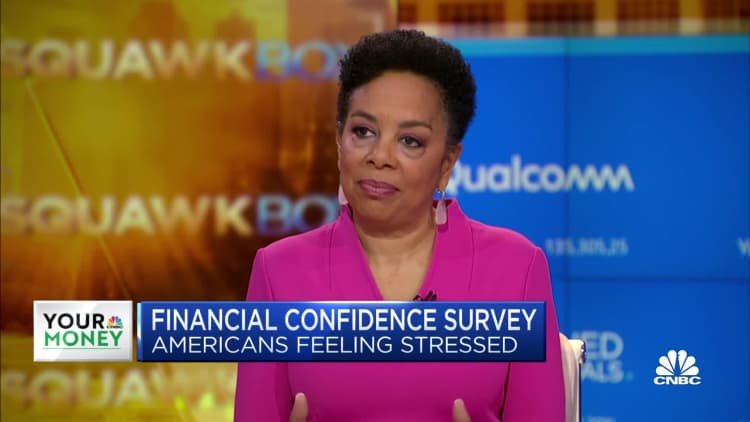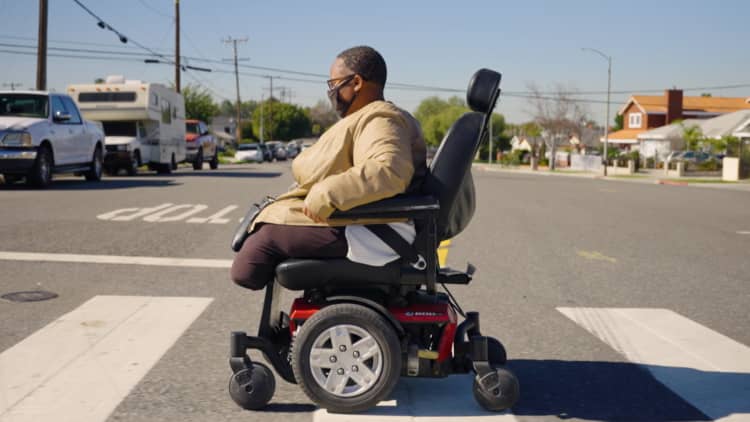The last couple of years have been plagued with financial turmoil, from the economic impacts of the Covid-19 pandemic to record-high inflation to ongoing rate hikes from the Federal Reserve.
It's perhaps understandable, then, that over half (53%) of Americans report not having emergency savings. Just 45% of respondents say they currently have an emergency fund, according to the CNBC Your Money Financial Confidence Survey, conducted in partnership with Momentive.

While it's encouraging to see a large portion of the 4,336 survey respondents taking this crucial step toward financial wellness, there's always room for improvement when it comes to preparing for the unexpected.
Experts say you should aim to save three to six months' worth of living expenses to best position yourself for a major loss of income or sudden costly event like a car repair or medical procedure. But that's no easy feat, especially when 58% of respondents also report living paycheck to paycheck.
You might not be able to put away six months' of expenses right away, and that's OK. But having even a small amount in the bank could help you avoid debt in the case of an emergency. From there, you can keep building your savings until you feel comfortable with the amount.
See how your savings stack up below, as well as steps you can take to boost your emergency fund.
Higher earnings increase emergency preparedness
When it comes to those who already have emergency savings, men are more likely than women, older adults are more likely than younger people and white Americans are more likely than Black, Hispanic or Asian Americans, the survey found.
And generally speaking, earning more money seems to make it easier to put more away. Those earning six-figure salaries are three times as likely to have an emergency fund as those who earn less than $50,000 a year, the survey found.
Here's the breakdown of how many respondents say they have an emergency fund by income level:
- Incomes below $50,000: 24%
- Incomes between $50,000 and $99,999: 49%
- Incomes of $100,000 and above: 72%
The highest earners are also more likely to report having larger emergency funds: 57% of those who earn $100,000 or more and have an emergency fund have more than $20,000 socked away, compared with just 17% of those who make less than $50,000 a year.
Just 8% of respondents who say they have an emergency fund report having less than $1,000 in it.
How to start building an emergency fund
If three to six months' worth of expenses seems daunting, start small. The average emergency costs Americans around $1,400, according to a LendingClub survey from last year.
Here are a few tips to get started.
1. Take stock of your income and expenses
If you're not currently tracking your income and expenses, start now. You may find you're overspending on unused subscriptions or impulsive Amazon purchases and be able to trim those and put the money toward a rainy day fund.
2. Use cash windfalls to get ahead
Did you get a tax refund this year? Tax refunds, gifts, annual bonuses and other cash windfalls are a great way to quickly build your emergency savings.
If you don't need the extra cash to cover immediate needs like groceries or living expenses, stash it in a high-yield savings account and try not to use it unless it's an absolute emergency.
3. Automate your savings
One of the easiest ways to build your emergency savings over time: set it and forget it. Figure out how much of your paycheck you can afford to sock away, then set up a direct deposit to your savings account to start saving automatically every time you get paid.
It's harder to spend money you don't see, so make sure to keep this separate from your regular checking or other spending account.
DON'T MISS: Want to be smarter and more successful with your money, work & life? Sign up for our new newsletter!
Check out: 6 signs you have too much debt—and how to pay it off



